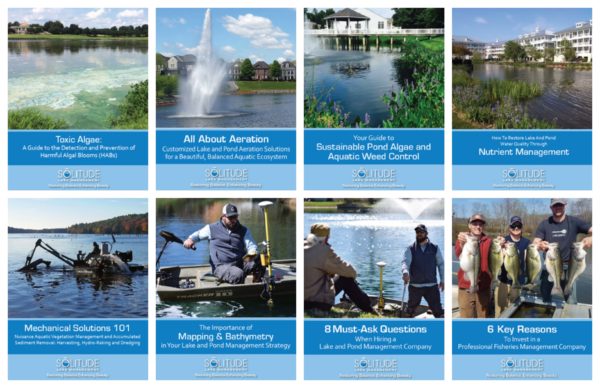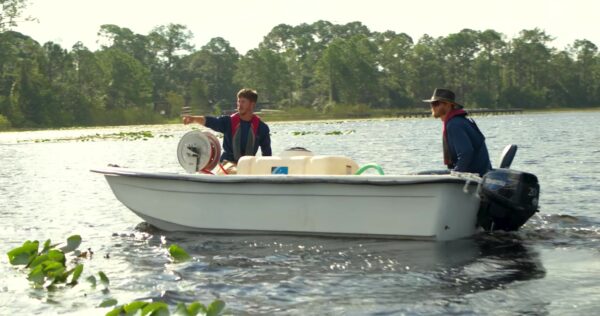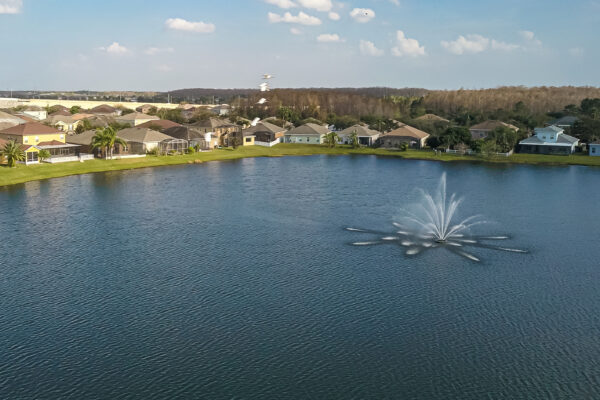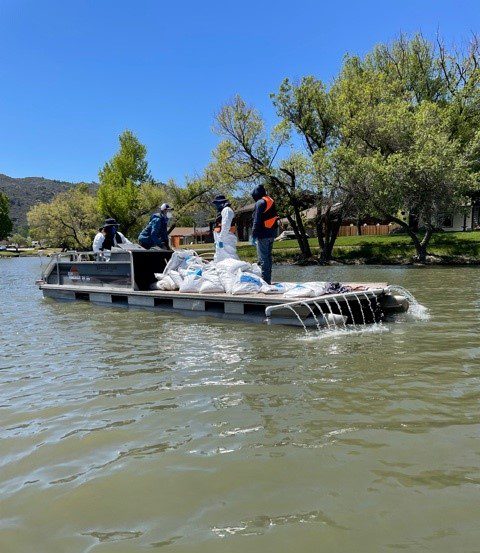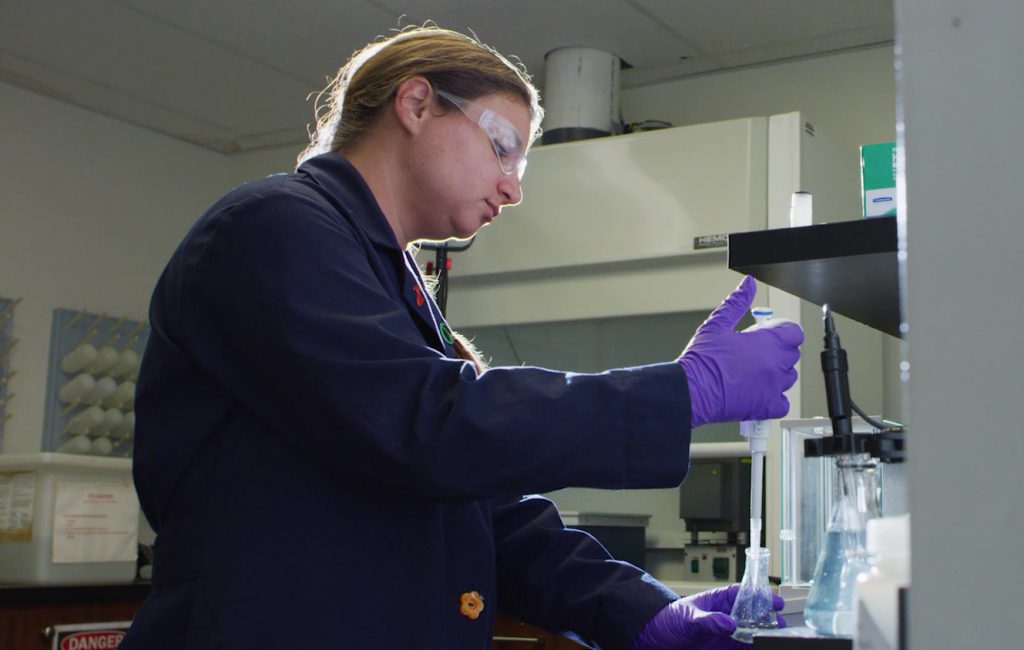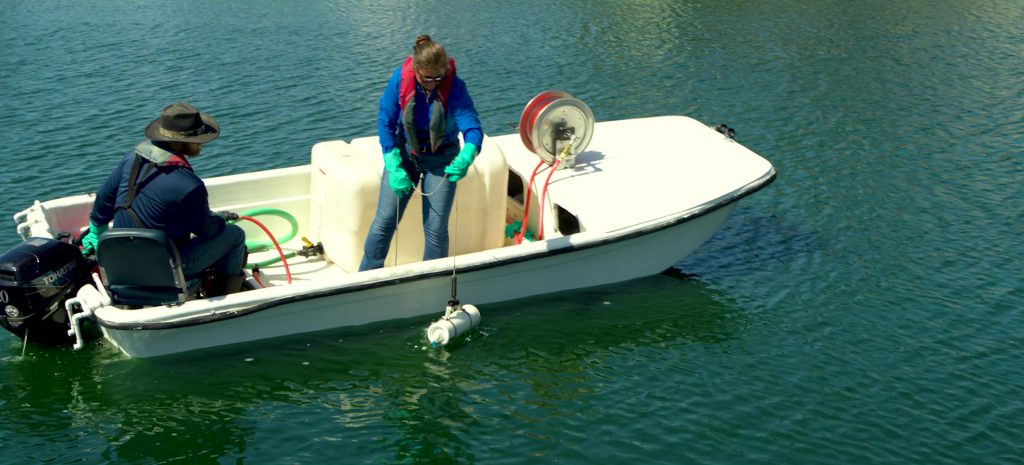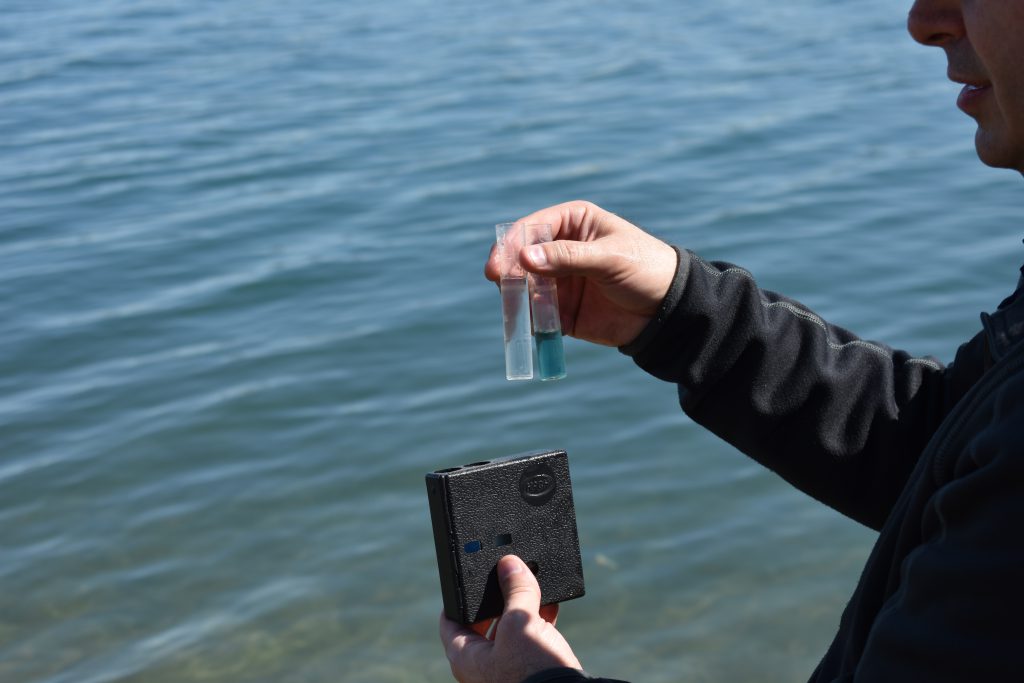
Water Quality Testing Deep Dive
Water quality is the foundation of any healthy water resource. If you think about going to the doctor and getting blood drawn to identify a health issue, you could compare that with water quality testing. In lake and pond management, scientists evaluate these and many other water quality parameters to determine the root of water quality issues.
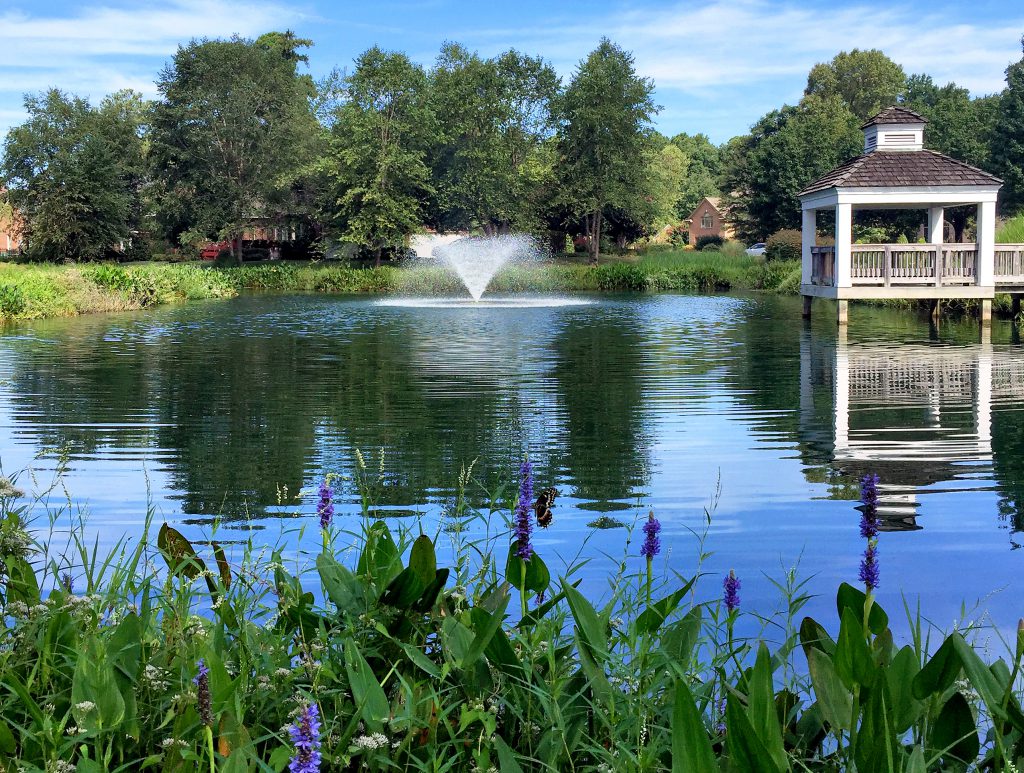
Testing Oxygen and Ammonia Levels
The first parameter typically measured in water quality tests is oxygen. Oxygen is one of the most important elements to humans. Just like humans and animals, waterbodies also utilize oxygen to survive. In lake and pond management, we use tools to test for dissolved oxygen (DO) levels in the water. If dissolved oxygen levels are low, aquatic life becomes stressed. This usually occurs when excess organic materials, such as large algal blooms, are decomposed by microorganisms.
Like oxygen, ammonia can cause parallel issues in aquatic environments if levels are unbalanced. For example, high levels of ammonia can make fish become lethargic and even cause them to die off. Higher concentrations of ammonia are more likely when dissolved oxygen levels are very low or when the water is polluted. The introduction of floating fountains or submersed aeration systems can help maintain healthy levels of both oxygen and ammonia.
Testing Phosphorus Levels
Another parameter measured is phosphorus, another essential element of all living things. However, when in excess, it can cause many systemic changes to the ecosystem such as increased production of algae and aquatic plants, as well as depletion of fish species. How can we stop this from happening and create a balanced ecosystem? Try reducing fertilizer use around your lake or pond and treat phosphorus-laden bottom sediments with nutrient remediation solutions like Alum, Phoslock, or biologicals.
Testing Nitrogen Levels
Nitrogen is a similar parameter measured during water quality testing. Nitrogen provides food for plants, algae, fish, and smaller organisms in the water. Nitrogen can enter the water through fertilizer runoff, and when in excess, it can lead to the growth of nuisance aquatic plants and algae, creating an unbalanced ecosystem. To maintain healthy levels of nitrogen, reduce fertilizer runoff to water resources, and implement nutrient remediation solutions when needed. Excess nitrogen levels, along with other elements, can be reduced by repairing erosion damage and establishing a native vegetative buffer and littoral zone that helps filter excess nutrients before they enter the water column.
Testing Alkalinity Levels
Another parameter commonly tested is alkalinity. The alkalinity of a waterbody is very important. Think of this in terms of human physiology. Your blood pH should always be balanced to allow enzymes to function effectively. In lakes and ponds, alkalinity is a measure of the waterbody’s ability to neutralize acids and bases, and thus, maintain a stable pH level. If the alkalinity is too low, this can lead to dangerous pH swings, which can become life-threatening to aquatic life. Professional liming is often recommended to increase alkalinity and prevent pH swings.
Stay Ahead of Water Quality Issues with Regular Testing
Knowing the levels of each water quality testing parameter is vital. Through recurring water quality testing and monitoring, aquatic resource experts can develop effective management plans that meet the needs of your waterbody. SOLitude is proud to offer a variety of water quality testing packages, tailored to fit the needs and budget of your waterbody. With insight from our biologists, you can stay ahead of water quality issues and maintain a healthy, beautiful waterbody year after year.
Discover the Benefits of Water Quality Assessments
SOLitude Lake Management is a nationwide environmental firm committed to providing sustainable solutions that improve water quality, enhance beauty and preserve natural resources.
SOLitude’s team of aquatic scientists specializes in the development and execution of customized lake, stormwater pond, wetland and fisheries management programs. Services include water quality testing and restoration, algae and aquatic weed control, installation and maintenance of fountains and aeration systems, shoreline erosion control, muck and sediment removal and invasive species management. SOLitude partners with homeowners associations, golf courses, private landowners, businesses and municipalities. SOLitude Lake Management is part of Rentokil, a leading business services company, operating across the United States, Canada and Puerto Rico.
For more information, visit SOLitude Lake Management at solitudelakemanagement.com, and connect on Facebook, LinkedIn and Twitter.



